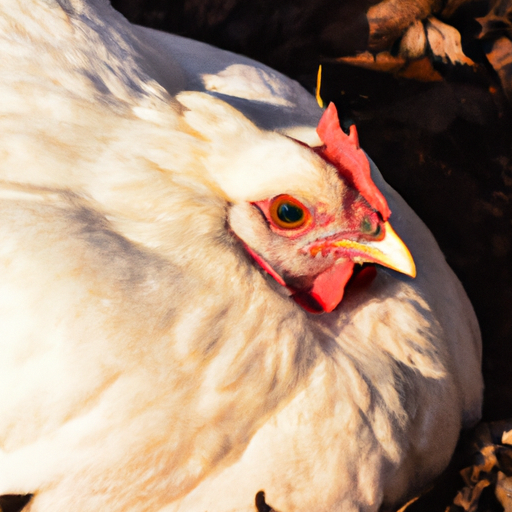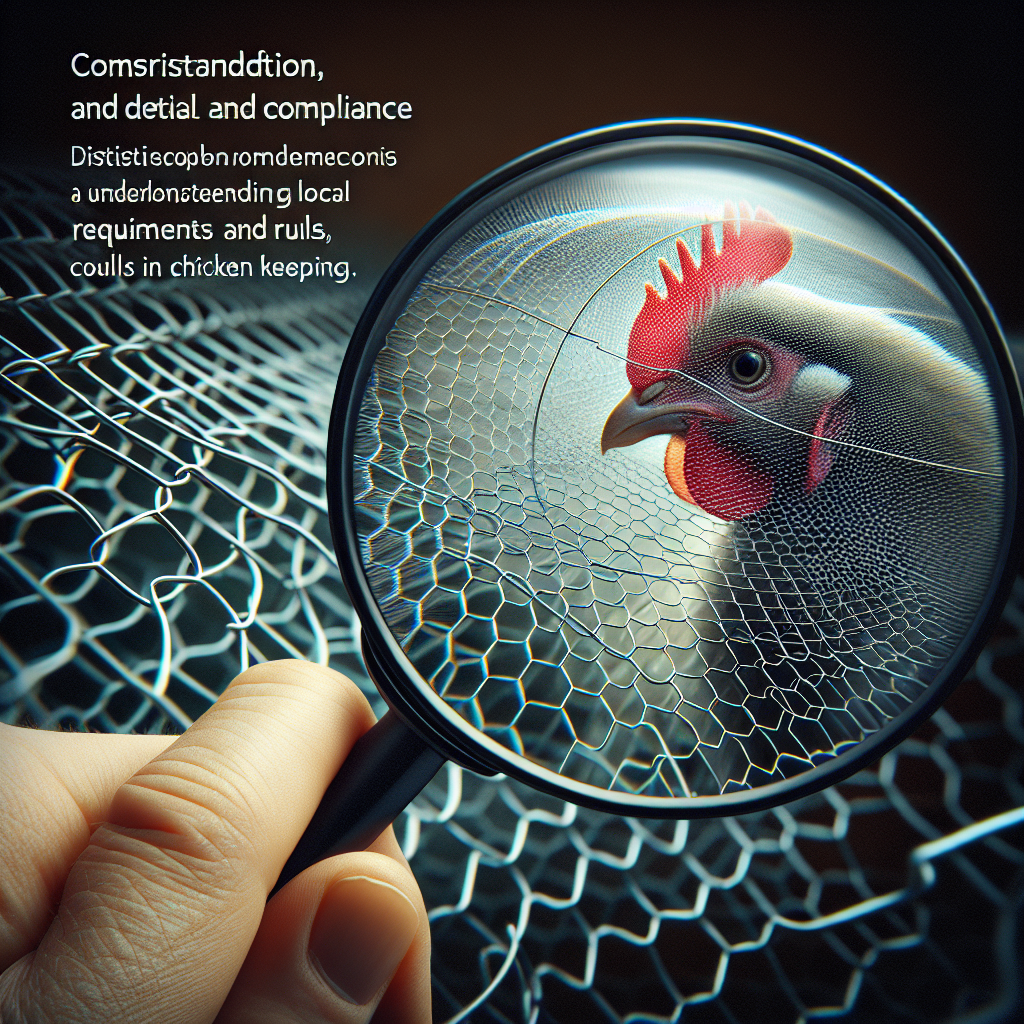So you’ve decided to venture into the world of chicken care, but you’re not quite sure where to start. Don’t worry, we’ve got you covered! In this article, we’ll be highlighting the common mistakes that beginners often make when it comes to taking care of chickens. From improper housing to inadequate nutrition, we’ll give you the lowdown on what to avoid in order to ensure the health and happiness of your feathery friends. So grab a comfortable seat and get ready to learn the do’s and don’ts of chicken care!
Choosing the Wrong Breed
When starting your chicken raising journey, one of the first and most crucial decisions you’ll make is choosing the right breed. Unfortunately, many beginners make the mistake of neglecting important considerations that can greatly impact the success and well-being of your flock.
Not considering the climate and environment
Before bringing home your feathered friends, it’s vital to take into account the climate and environment in which you live. Different breeds have various tolerances to heat, cold, and humidity, so it’s essential to choose a breed that can thrive in your specific climate. For example, some breeds are more cold-hardy and can withstand chilly winters, while others may struggle and require extra care.
Neglecting to research the breed’s temperament
Each chicken breed has its own unique temperament and characteristics. Some are docile and friendly, while others can be more skittish or even aggressive. It’s crucial to research and understand the breed’s temperament before selecting it for your flock. This way, you can ensure compatibility with your own preferences and the environment in which you plan to raise your chickens.
Ignoring the purpose of raising chickens
Another mistake beginners often make is not considering the purpose for which they want to raise chickens. Do you primarily want them for egg production, meat, or as pets? Different breeds excel in different areas, so it’s important to choose a breed that aligns with your goals and expectations. For example, if you want a high egg production breed, you wouldn’t select a breed primarily known for its meat quality.
Inadequate Housing
Providing appropriate housing is crucial for the health, safety, and well-being of your chickens. Unfortunately, many beginners fail to meet the necessary requirements, leading to various problems.
Insufficient space
One of the most common mistakes beginners make is not providing enough space for their chickens. Overcrowding can lead to stress, aggression, and an increased risk of diseases. It’s important to provide at least four square feet of indoor space per bird, as well as adequate outdoor space for exercise and foraging.
Not providing proper ventilation
Proper ventilation is essential to maintain good air quality within the chicken coop and prevent respiratory issues. Many beginners underestimate the importance of ventilation, leading to high humidity levels and the accumulation of ammonia from droppings. Adequate airflow helps prevent the build-up of harmful gases and keeps the coop fresh and healthy for your chickens.
Lack of protection from predators
Predators pose a significant threat to your chickens, especially if you live in an area with wildlife or a rural setting. Failing to provide proper protection can result in devastating losses. Ensure your coop or chicken run is secure from predators such as foxes, raccoons, and snakes by using appropriate fencing, locks, and covers.
Failure to maintain cleanliness
Maintaining a clean and sanitary environment is crucial for the overall health of your flock. Neglecting cleanliness can lead to the spread of diseases and parasites. Regularly clean the coop, remove droppings, and provide fresh bedding. Remember to also regularly inspect the coop for any signs of wear or damage that could compromise the safety of your chickens.
Poor Nutrition
Providing a balanced and nutritious diet is essential for the health, productivity, and longevity of your chickens. Unfortunately, beginners often make mistakes when it comes to feeding their flock.
Inaccurate feed ratios
Feeding chickens the appropriate ratios of proteins, carbohydrates, fats, vitamins, and minerals is essential for optimal health. Beginners may unknowingly provide an imbalanced diet, either too low or too high in certain nutrients. It’s important to choose high-quality commercial feed specifically formulated for the needs of your chickens and follow the recommended feeding guidelines.
Not providing a balanced diet
Chickens require a varied and balanced diet to thrive. Many beginners mistakenly believe that kitchen scraps or grains alone are sufficient for their chickens’ nutritional needs. While treats can be given in moderation, they should not make up the bulk of the diet. A balanced diet includes a combination of commercial feed, fresh fruits and vegetables, grains, and access to insects and worms.
Failure to provide access to clean water
Water is essential for the health and well-being of your chickens. It’s crucial to provide clean and fresh water at all times. Beginners may overlook the importance of this, resulting in dehydration and other health issues. Ensure your chickens always have access to clean water by regularly checking and refilling their water containers.
Overfeeding or underfeeding
Proper portion control is crucial when it comes to feeding your chickens. Overfeeding can lead to obesity, decreased egg production, and a higher risk of health problems, while underfeeding can result in malnutrition and poor growth. Understanding the appropriate portion sizes for your chickens’ age, size, and breed is essential for their overall health and productivity.
Neglecting Health Care
Just like any other animals, chickens require routine health care to thrive. Neglecting their basic health needs can lead to serious consequences.
Lack of routine vaccinations
Vaccinations are an important preventive measure to protect your flock from various diseases. Many beginners overlook the necessity of routine vaccinations, leaving their chickens vulnerable to illnesses such as Marek’s disease or Newcastle disease. Consult with a veterinarian specializing in poultry to determine the appropriate vaccination schedule for your flock.
Not monitoring for signs of illness
Knowing the signs of illness in chickens is crucial for early detection and prompt treatment. Beginners may lack the knowledge or fail to observe their flock closely, resulting in undetected illnesses that can quickly spread. Regularly observe your chickens for any changes in behavior, appearance, or eating patterns. If you notice anything unusual, seek veterinary advice promptly.
Neglecting parasite prevention
Parasites such as mites, lice, fleas, and worms can cause significant discomfort and health issues for your chickens. Neglecting regular parasite prevention can lead to infestations that are challenging to eradicate. Implement a prevention program recommended by a veterinarian and regularly inspect your chickens for signs of infestation.
Ignoring proper wound care
Accidents and injuries can happen, and it’s essential to provide proper wound care for your chickens. Ignoring wounds or leaving them untreated can lead to infections and more severe complications. Clean wounds with a mild antiseptic solution and consider using topical ointments or bandages as necessary. Consult with a veterinarian for more severe injuries or if you’re unsure of how to handle specific wounds.
Inadequate Security
The safety and security of your flock should be a top priority. Neglecting security measures can result in devastating losses and unnecessary risks.
Not securing the coop properly
Ensuring the coop is secure is essential to protect your chickens from predators, theft, or escape. Many beginners underestimate the determination of predators or fail to consider potential weak points in their coop’s construction. Regularly inspect the coop for any gaps, holes, or loose doors, and reinforce them accordingly.
Failure to protect against predators during free-range
If you allow your chickens to free-range, it’s crucial to provide additional security measures. Predators can be a significant threat when chickens are given more freedom to roam. Consider using a secure chicken run or electric fencing to provide a safe outdoor space for your flock.
Leaving chickens unattended for extended periods
Chickens are social animals and require regular attention and monitoring. Leaving them unattended for extended periods can lead to increased stress, vulnerability to predators, and health issues. Ensure someone trustworthy can care for your chickens in your absence, or make arrangements for a reliable chicken-sitter.
Overlooking Socialization
Chickens thrive when they have opportunities for social interaction and flock integration. Overlooking socialization can have negative consequences for their mental well-being and behavior.
Keeping a solitary chicken
Chickens are natural flock animals and thrive in the company of their own kind. Keeping a single chicken can lead to loneliness, depression, and behavioral problems. If possible, aim to have at least two or more chickens to provide companionship and support each other’s social needs.
Not providing opportunities for flock integration
When introducing new chickens to an existing flock, it’s essential to allow for proper integration. Many beginners make the mistake of simply adding new chickens without considering the dynamics and social hierarchy within the flock. Gradual introductions and supervised socialization can help minimize conflicts and ensure a smoother transition.
Neglecting to observe and manage pecking order
Chickens establish a pecking order within their flock, which determines their rank and social standing. Neglecting to observe and manage the pecking order can lead to aggression and injuries. Observe your chickens to identify any signs of excessive bullying or aggression and intervene if necessary. Provide enough resources such as food, water, and space to minimize competition and stress.
Handling and Behavior
Proper handling and understanding of chicken behavior are crucial for the well-being and trust between you and your chickens.
Aggressive handling or mishandling
Rough or aggressive handling can lead to fear, stress, and injury in chickens. It’s important to handle them gently and with care, respecting their size and fragility. Take the time to learn proper handling techniques and teach children or visitors to interact with chickens in a calm and gentle manner.
Failure to provide toys or enrichment
Chickens are curious creatures and thrive when provided with mental stimulation and enrichment. Many beginners overlook the importance of providing toys, perches, and other forms of entertainment to keep their flock engaged and prevent boredom. Simple items such as hanging vegetables, mirrors, or a flock block can provide hours of entertainment and mental exercise for your chickens.
Not understanding chicken behavior
Understanding chicken behavior is essential for effective communication and identifying their needs. Beginners may not be familiar with certain behaviors, body language, or vocalizations, leading to misinterpretation or missed signs of distress. Educate yourself on common chicken behaviors and consult reputable sources to better understand your flock’s needs.
Ignoring Egg Production
If you intend to raise chickens for egg production, it’s crucial to prioritize their reproductive health and address any issues promptly.
Not providing suitable nesting boxes
Chickens require appropriate nesting boxes to lay their eggs. Many beginners underestimate the importance of providing clean, dark, and cozy nesting areas, resulting in eggs being laid in undesirable locations or becoming vulnerable to damage. Provide enough nesting boxes that are easily accessible, with suitable bedding, and offer privacy for your chickens to lay their eggs comfortably.
Neglecting to collect eggs regularly
Collecting eggs regularly is crucial to maintain cleanliness and prevent the eggs from being damaged or getting spoiled. Beginners may forget to collect eggs daily, allowing them to accumulate and potentially break, attract pests, or become unsuitable for consumption. Make it a routine to collect eggs at least once a day to ensure their freshness and avoid any unnecessary mess or waste.
Failure to monitor and address egg-related health issues
Egg-related health issues such as egg binding or prolapse can occur in chickens, especially in certain breeds or older hens. Beginners may not be aware of these potential problems or fail to monitor and address them promptly. Regularly check your chickens for any signs of egg-related health issues, such as straining, blood in the droppings, or unusual discharge. Consult with a veterinarian for proper diagnosis and treatment.
Disregarding Legal Requirements
Raising chickens may be subject to local regulations, permits, or zoning restrictions. Ignoring these legal requirements can lead to penalties or legal issues.
Neglecting to check local regulations
Before embarking on chicken raising, it’s essential to research and understand the local regulations regarding backyard chicken ownership. Each area may have different rules regarding the number of chickens allowed, noise restrictions, or required setbacks from property boundaries or dwellings. Familiarize yourself with these regulations to ensure compliance.
Not obtaining necessary permits or licenses
In some areas, obtaining permits or licenses may be required to legally keep chickens. Beginners may assume they can proceed without the necessary paperwork, leading to potential fines or forced removal of their flock. Check with your local authorities to determine if any permits or licenses are required and follow the proper procedures to obtain them.
Failure to follow zoning restrictions
Zoning regulations dictate where and how chickens can be kept in certain areas. Beginners may overlook these restrictions, resulting in violations and possible consequences. Understand the specific zoning requirements in your area, including setbacks, coop specifications, or restrictions on certain breeds, and ensure your chicken setup adheres to these regulations.
Lack of Preparedness
Finally, lacking the necessary preparations before bringing chickens home can lead to unnecessary stress, challenges, and potential emergencies.
Not having essential supplies ready
Before bringing home chickens, it’s important to have all the necessary supplies prepared and readily available. Many beginners make the mistake of acquiring chickens before their coop, feeders, waterers, bedding, and other essential equipment are ready, leading to avoidable chaos or delays. Make a checklist of all the required supplies and ensure you have everything set up before bringing home your new feathered friends.
Failure to educate oneself about chicken care
Educating oneself about chicken care is crucial for beginners to establish a solid foundation of knowledge. Lacking the necessary understanding of chicken behavior, nutrition, health care, and general husbandry practices can lead to preventable mistakes and suboptimal chicken welfare. Take the time to read books, online resources, or attend workshops and seek advice from experienced chicken keepers to enhance your understanding.
Neglecting to establish a contingency plan for emergencies
Emergencies can happen at any time, so it’s vital to have a contingency plan in place. Beginners may not anticipate potential emergencies such as severe weather conditions, power outages, or health crises. Establish a plan for these situations, including alternative housing options, backup power sources, and a list of emergency contacts, including veterinarians who specialize in avian care.
In conclusion, avoiding common mistakes in chicken care is crucial for the success and well-being of your flock. By considering the climate and environment, providing adequate housing, nutrition, health care, security, socialization, and understanding behavior, you can be well-prepared to raise happy and healthy chickens. Remember to always educate yourself, follow legal requirements, and have a contingency plan in place. With proper care and attention, your feathered friends will reward you with companionship, fresh eggs, and endless entertainment. Happy chicken keeping!




